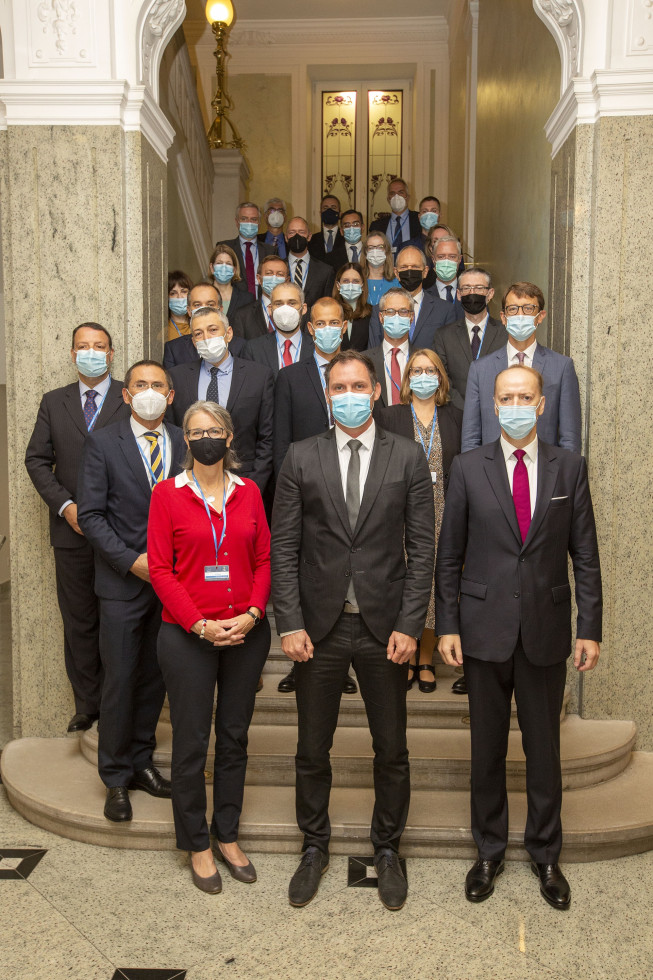Slovenia hosts a consultation of EU non-proliferation and disarmament directors
- Ministry of Foreign Affairs
The conference was opened by Uroš Zorko, Director-General of Defence Policy Directorate at the Ministry of Defence. In his address, he underlined Slovenia’s commitment to promoting universalisation of international agreements, conventions and other instruments governing non-proliferation and disarmament and their implementation by States Parties. He also highlighted the issue of breakthrough technologies and autonomous ordnance systems, which represent an increasingly tangible security challenge. Director-General Zorko advocated further coordination of the EU’s action in the field of arms control, including in terms of strategic autonomy, taking into account the transatlantic partnership.
The consultation focused on preparations for the upcoming 10th NPT Review Conference. For this reason, Argentinian Ambassador Gustavo Rodolfo Zlauvinen, the current Chair of the Review Conference, was the special guest of the Directors’ dinner held on 28 September. The EU Directors expressed their continued support for his efforts with a view to ensuring the success of the meeting at the United Nations (UN) headquarters in New York at the beginning of next year. They also discussed key orientations for the preparation of the conclusions of the EU Council for the Review Conference, which will constitute its mandate for negotiations on the outcome document of the Conference. They agreed that it is crucial for the EU to attend the Review Conference well prepared and contribute constructively to further strengthening the implementation of the Treaty as the cornerstone of the global non-proliferation and disarmament regime.
The EU non-proliferation and disarmament directors also touched upon the Union’s role in the field of arms control in the framework of a full-day meeting, especially in the light of the increasing pressure in recent years on a series of extremely important regimes with direct consequences for European security. Part of the consultation was devoted to a discussion on strengthening EU policies in the field of export control of military technology and equipment, with a particular focus on identifying practical ways of deepening cooperation and convergence within the EU. The directors also addressed the upcoming 6th Review Conference of the Parties to the Convention on the Prohibition or Restriction of the Use of Certain Conventional Weapons (CCW) scheduled for December this year. In doing so, most attention was paid to addressing challenges and future steps in the work of the Special Expert Group (GGE) on Autonomous Ordnance (LAWS).
As part of the consultation, the EU directors also visited the Jožef Stefan Institute reactor centre and learned more about the role of the Triga Mark II research reactor in the development of Slovenian nuclear expertise. On their visit to the reactor, as well as the Milan Čopič Nuclear Training Centre, the visiting representatives of EU member states were briefed on Slovenia’s contribution to the peaceful use of nuclear energy. Slovenia is one of the 32 countries in the world with a comprehensive civilian nuclear programme, which is why the country pays special attention to nuclear issues. Recently, Slovenia was re-elected to the Board of Governors of the International Atomic Energy Agency (IAEA) for the period 2021–2023. This is now the fourth time Slovenia has been a member of this key body of the IAEA, enabling the country to continue its activities in support of strengthening the Agency’s contribution to international peace and security.

